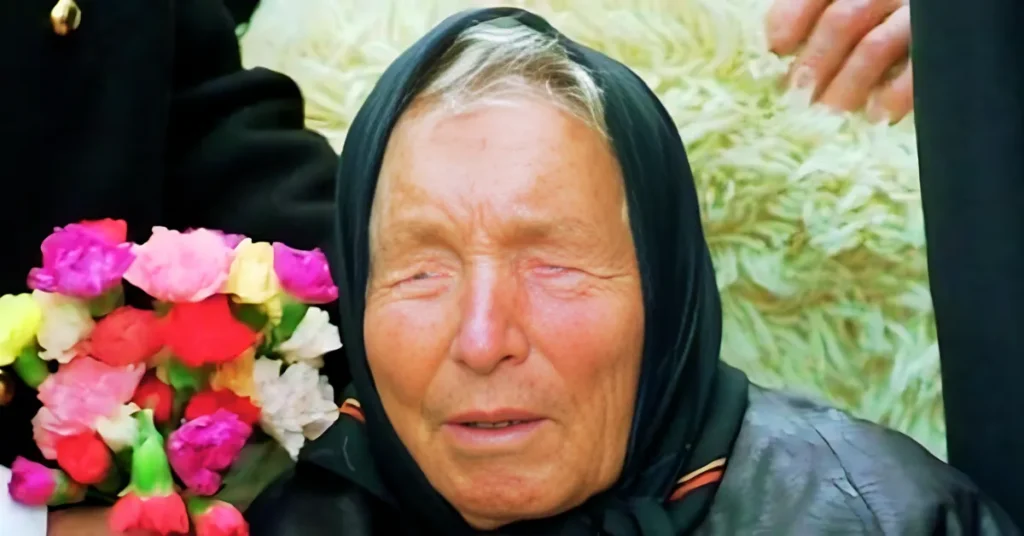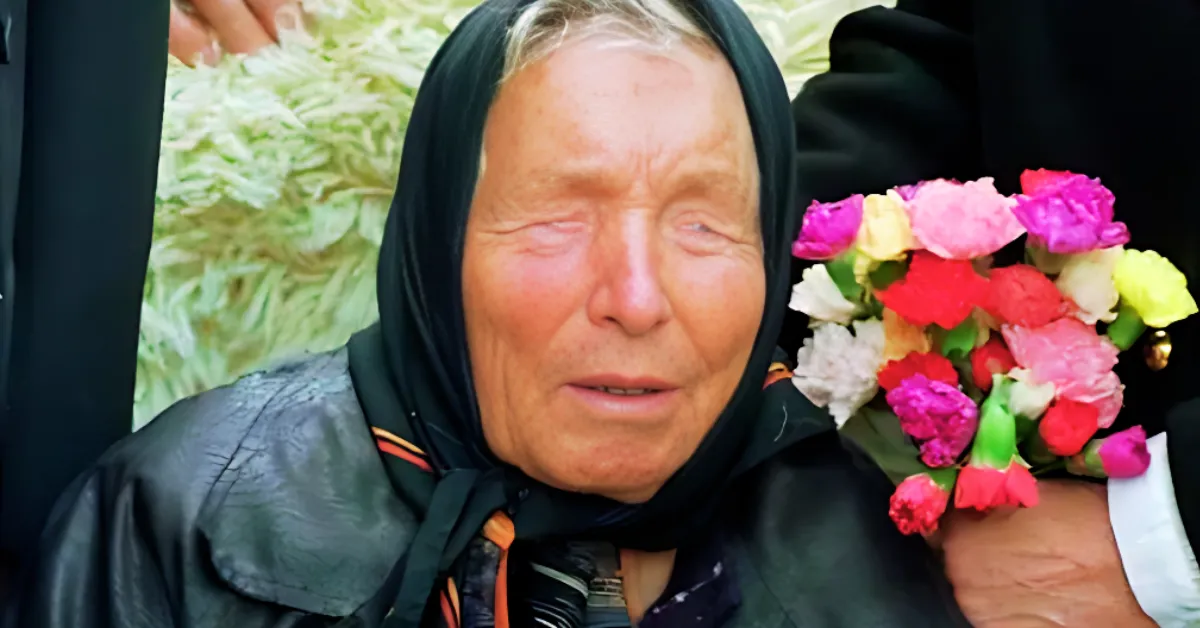Baba Vanga – Mystic’s Enduring Vision Still Shape Global Discourse
Rupite, Bulgaria – August 11, 1996 (and beyond) – The passing of Vangeliya Pandeva Gushterova, better known as Baba Vanga, on August 11, 1996, did not diminish her profound influence; rather, it cemented her status as one of the 20th century’s most intriguing and debated figures in the realm of prophecy.
Born in 1911 in what is now North Macedonia, Vanga lost her sight at the age of twelve during a mysterious storm, an event she later claimed unlocked her extraordinary ability to foresee the future.
For decades, from her humble home in Rupite, Bulgaria, people from all walks of life, including political leaders and ordinary citizens, sought her counsel, eager for glimpses into their personal fates and the destiny of nations, thereby shaping public perception and sparking widespread fascination with her alleged clairvoyant gifts.
Her perceived accuracy in predicting significant world events, even years after her death, continues to fuel widespread discussions and analyses, solidifying her controversial yet undeniable societal presence.
Baba Vanga’s “offerings to society” were mostly her purported prophecies and her work as a spiritual counselor and healer; she was neither a philosopher nor a scientist in the traditional sense, nor did she write academic publications summarizing her discoveries.
Many came to her seeking relief from illnesses, believing in her ability to offer natural remedies or spiritual guidance that transcended conventional medicine. Her simple, often cryptic pronouncements on global events, ranging from natural disasters to political shifts, resonated deeply with those who felt a need for understanding and certainty in an unpredictable world.

This was especially true during the tumultuous years of the Cold War, when her pronouncements provided a unique lens through which many in Eastern Europe interpreted unfolding events, creating a sense of shared anticipation or dread based on her words.
The impact of Baba Vanga on society is multifaceted, transcending mere curiosity about the future; her pronouncements have often served as a focal point for collective anxieties and hopes, particularly during times of crisis.
For example, her alleged predictions of major events like the 9/11 attacks (“The American brothers will fall after being attacked by the steel birds”), the Chernobyl disaster, and The Although it is frequently subject to interpretation and retrofit, the fall of the Soviet Union has greatly added to her legendary status.
While skeptics rightly point out the vagueness of many prophecies and the tendency for “confirmation bias” – where people selectively remember hits and forget misses – her followers remain convinced of her genuine foresight.
In a recent interview, Dr. Anya Petrova, a sociologist who studies cultural phenomena, stated that “Baba Vanga’s lasting appeal lies not just in her supposed accuracy, but in humanity’s intrinsic desire to find patterns and meaning in chaos.”
She offered a narrative, however mysterious, that many found comforting or at least engaging in uncertain times.” Her legacy therefore represents a fascinating case study in belief systems, the power of myth, and the human psychological need for foresight.

Baby Born Mid Flight citizenship 3 countries & lifetime free Flights
The birth of Skylar Harper at 30,000 feet aboard SkyJet Airways Flight SJ452 is a story of human triumph, legal rarity, and global celebration. With citizenship in three countries—the United States, the United Kingdom, and Ireland—Skylar begins life as a symbol of unity,
Beyond the realm of geopolitical predictions, Baba Vanga’s perceived ability to provide comfort and guidance to individuals dealing with personal challenges also represents a significant, albeit less documented, aspect of her societal contribution.
People sought her out for advice on health, relationships, and lost loved ones, finding solace in her words, regardless of their scientific verifiability. Her life story, a blind woman from humble beginnings who became a revered figure, often symbolized resilience and a unique connection to a higher power for many.
This gave hope to those in despair, offering a spiritual alternative to the often harsh realities of daily life. Even today, over two decades after her passing, discussions about her predictions continue to circulate widely across online forums, social media, and traditional news outlets, demonstrating the powerful grip her persona still holds on the collective imagination.
Her prophecies for the coming years, including those for 2025 related to economic shifts, new energy sources, and potential extraterrestrial contact, continue to generate significant interest, illustrating her enduring relevance in contemporary discourse.
Frequently Asked Questions About Baba Vanga
Who was Baba Vanga?
Baba Vanga, whose full name was Vangeliya Pandeva Gushterova, was a blind Bulgarian mystic and alleged clairvoyant who lived from 1911 to 1996, gaining widespread fame for her prophecies regarding global events and individual destinies.
What did Baba Vanga offer to society during her lifetime?
Baba Vanga offered spiritual guidance, purported healing, and prophecies about the future, which provided comfort, meaning, and a sense of foresight to countless individuals and became a lens through which many interpreted world events.
Are Baba Vanga’s predictions accurate?
The accuracy of Baba Vanga’s predictions is a subject of debate; while her followers claim a high success rate and point to several seemingly fulfilled prophecies, skeptics argue that her predictions are often vague and can be interpreted in various ways after events have occurred.
Why is Baba Vanga still famous today?
Baba Vanga remains famous today due to the widespread fascination with her alleged prophecies, the ongoing discussions about their accuracy, and the human desire for insights into the future, particularly in times of global uncertainty.
Where did Baba Vanga live?
Baba Vanga spent most of her life in the small village of Rupite, Bulgaria, where she received visitors from all over the world seeking her guidance.
Baba Vanga’s legacy is a testament to humanity’s enduring fascination with the unknown and the profound influence that charismatic figures, even those with controversial claims, can have on society.
Whether viewed as a genuine oracle or a powerful cultural phenomenon, her story continues to captivate, offering a unique reflection on how societies grapple with uncertainty and seek meaning beyond the tangible.
Her impact transcends mere historical record, continuing to spark conversations and inspire wonder about the mysteries of perception and prophecy.

